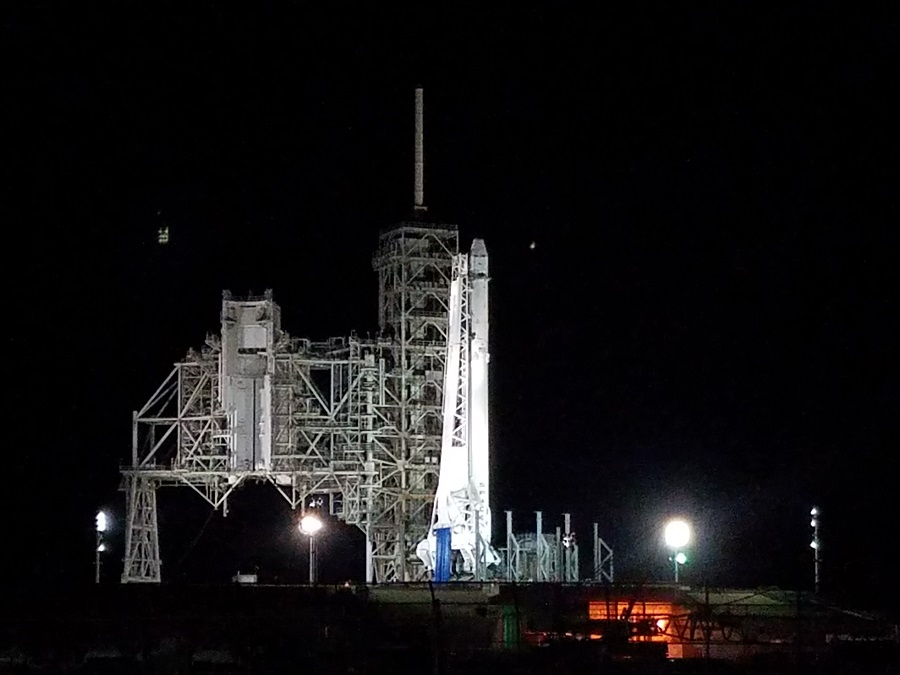
An out-of-control SpaceX rocket is forecast to crash on March 4; it should be traveling at a brisk 5,770 mph when it hits the ground. But unlike previous out-of-control rockets from Russia or China in recent months, this SpaceX rocket is due to crash into the Moon.
On February 11, 2015, SpaceX launched the Deep Space Climate Observatory (DSCOVR) into space atop its Falcon 9 reusable rocket from Cape Canaveral, Florida. The satellite is designed to serve as an early-warning system for solar storms, some of which can damage electrical and communications systems on Earth, astronauts in near-Earth orbit, and satellites that orbit around the Earth.
The first stage was scheduled to return to Earth and land on a SpaceX drone barge parked in the Atlantic. However, due to bad weather at sea, SpaceX canceled that landing, instead bringing the first stage back into the ocean at a somewhat later time. SpaceX founder Elon Musk had Tweeted at the time, “Rocket soft landed in the ocean within 10m of target and nicely vertical!”
But the Falcon 9’s second stage rocket which successfully put the DSCOVR rocket in its appropriate transfer orbit lacked enough fuel to return and burn-up in the Earth’s atmosphere. The spent rocket also lacks the energy required to escape the gravity created by both the Earth and Moon; as such, it’s been falling about in a chaotic orbit for the last almost-7 years.
For some time, it looked like the SpaceX rocket would eventually tumble back to Earth and burn-up upon re-entry. But new analysis shows the Moon’s orbit will interfere with that trajectory, with the out-of-control rocket striking it instead of Earth. And without an atmosphere like the Earth’s to slow it down and/or burn it up, the SpaceX rocket is expected to crash into the Moon at a high velocity.
The dry mass of this second stage rocket is about 4 metric tons or roughly 8,800 pounds.
Scientists are eager to see what happens when something as heavy as this out-of-control rocket smashes into the Moon; this event is considered the first time a spacecraft has unintentionally crashed into the Moon. Current forecasts by astronomers suggest the rocket will crash into the middle of the “dark side” of the Moon. While the impact won’t be visible on Earth, Moon-orbiting spacecraft such as NASA’s Lunar Reconnaissance Orbiter and India’s Chandrayaan-2 spacecraft could capture the unique crash. Seeing what kind of matter and debris ejects up out of the ground from the Moon could provide insights to scientists on Earth interested in understanding the geology of the Earth’s rocky neighbor.